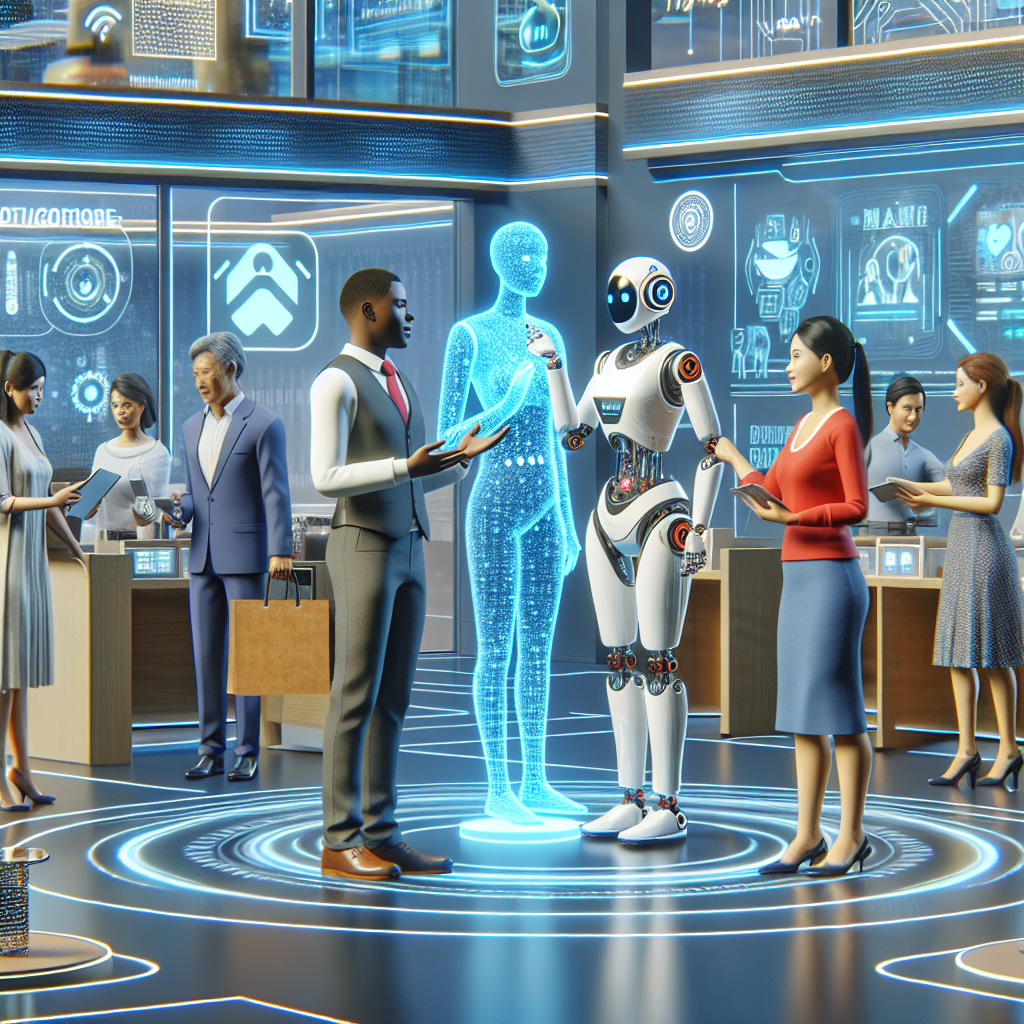In today’s digital age, customer service has become more important than ever. With the rise of online shopping and social media, customers have higher expectations when it comes to interacting with businesses. This is where artificial intelligence (AI) comes into play. AI is revolutionizing customer service by providing businesses with the tools they need to deliver exceptional customer experiences.
AI-powered customer service solutions can streamline processes, personalize interactions, and improve overall customer satisfaction. From chatbots to predictive analytics, AI is reshaping the way businesses engage with their customers. In this article, we will explore how AI is revolutionizing customer service in the digital age and its impact on businesses and customers.
1. Chatbots: One of the most common uses of AI in customer service is chatbots. These virtual assistants are programmed to interact with customers in a natural and conversational way. Chatbots can answer common questions, provide product recommendations, and even process orders. By using AI, businesses can provide 24/7 customer support without the need for human intervention.
2. Personalization: AI algorithms can analyze customer data to provide personalized recommendations and offers. By understanding a customer’s preferences and behavior, businesses can tailor their interactions to meet individual needs. This level of personalization can lead to increased customer satisfaction and loyalty.
3. Predictive Analytics: AI-powered predictive analytics can help businesses anticipate customer needs and preferences. By analyzing data from past interactions, businesses can predict future trends and make informed decisions. This proactive approach can help businesses stay ahead of the competition and deliver exceptional customer experiences.
4. Automation: AI can automate repetitive tasks, such as order processing and ticket routing. By freeing up human agents from mundane tasks, businesses can focus on more complex issues and provide higher-quality customer service. Automation can also reduce response times and improve efficiency.
5. Sentiment Analysis: AI-powered sentiment analysis can help businesses understand how customers feel about their products and services. By analyzing customer feedback and social media posts, businesses can identify trends and address issues before they escalate. This real-time feedback can help businesses improve their offerings and enhance customer satisfaction.
6. Omnichannel Support: AI-powered customer service solutions can provide support across multiple channels, such as email, social media, and live chat. By integrating these channels into a single platform, businesses can offer a seamless and consistent customer experience. This omnichannel approach can help businesses reach customers wherever they are and provide immediate assistance.
7. Data Security: AI-powered customer service solutions can help businesses protect customer data and prevent fraud. By using AI algorithms to monitor transactions and detect suspicious activity, businesses can safeguard sensitive information and build trust with their customers. This enhanced security can help businesses comply with regulations and mitigate risks.
In conclusion, AI is revolutionizing customer service in the digital age by providing businesses with the tools they need to deliver exceptional customer experiences. From chatbots to predictive analytics, AI-powered solutions are reshaping the way businesses engage with their customers. By leveraging AI technology, businesses can streamline processes, personalize interactions, and improve overall customer satisfaction. As AI continues to evolve, businesses will need to adapt to stay competitive in the digital landscape.
FAQs:
1. What are the benefits of using AI in customer service?
AI-powered customer service solutions can streamline processes, personalize interactions, and improve overall customer satisfaction. By using AI technology, businesses can provide 24/7 customer support, personalize recommendations, anticipate customer needs, automate repetitive tasks, analyze customer sentiment, offer omnichannel support, and enhance data security.
2. How can businesses implement AI in customer service?
Businesses can implement AI in customer service by investing in AI-powered solutions, such as chatbots, predictive analytics, automation tools, sentiment analysis, and omnichannel support. By integrating these tools into their existing customer service processes, businesses can enhance efficiency, personalize interactions, and improve customer satisfaction.
3. What are the challenges of using AI in customer service?
Some of the challenges of using AI in customer service include the initial cost of implementation, the need for ongoing training and maintenance, the potential for technical glitches, and concerns about data privacy and security. Businesses will need to address these challenges to successfully leverage AI technology in their customer service operations.
4. How can businesses measure the success of AI in customer service?
Businesses can measure the success of AI in customer service by tracking key performance indicators, such as response times, customer satisfaction scores, retention rates, and conversion rates. By analyzing these metrics, businesses can evaluate the impact of AI technology on their customer service operations and make data-driven decisions to improve performance.

